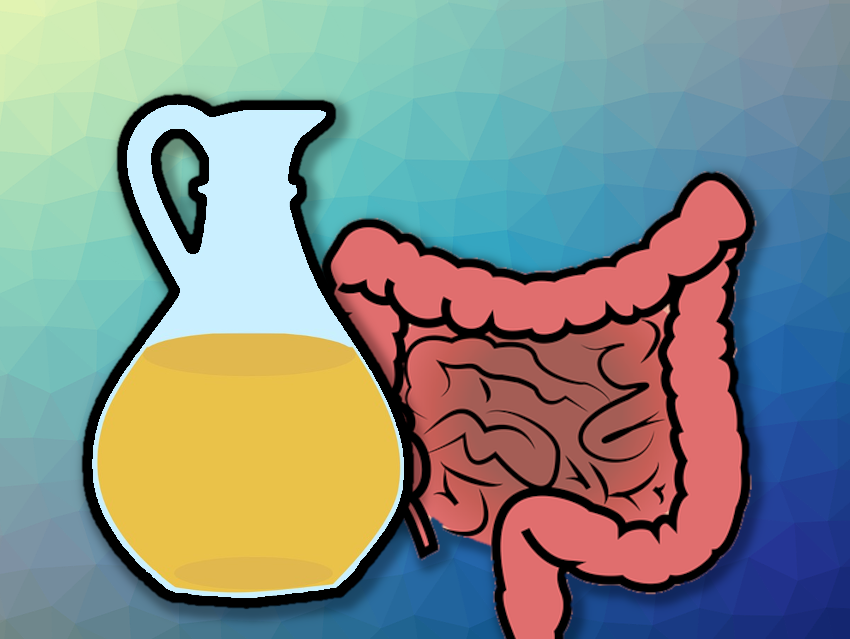High-fat diets are generally considered unhealthy and have been linked to diseases such as obesity, diabetes, inflammatory bowel disease, colon cancer, and fatty liver disease. Such diets can also affect the gut microbiome and intestinal gene expression. Existing gene expression studies had mostly been limited to one portion of the intestines, one type of high-fat diet, and/or saturated animal fats instead of plant-based unsaturated oils.
Poonamjot Deol, University of California, Riverside, USA, and colleagues have studied the effects of three different high-fat diets in four different segments of mouse intestines, using plant-based fats/oils. The researchers fed groups of mice diets where 40 % of the calories came from fat for 24 weeks. They used coconut oil (a saturated fat), soybean oil, and a genetically modified soybean oil with a fatty acid composition similar to olive oil. The team then analyzed the resulting microbiomes as well as the gene expression in the four different intestinal segments. They sampled the duodenum, jejunum, terminal ileum, and proximal colon and performed RNA sequencing.
Compared to a low-fat diet control group, the mice that were fed high-fat diets showed dysregulation of genes in multiple tissue samples, with different effects on gene expression depending on the fats/oils. There were changes in genes related to, e.g., fatty acid and drug metabolism, genes involved in the immune system, the microbiome, neurotransmitter production and transport, inflammation, and colon cancer. There also were changes in COVID-19-related genes: High-fat diets increased the expression of ACE2 receptors, which are important for viral entry. Genome sequencing showed that the high-fat diets also changed the gut microbiome. The team cautions that mouse studies do not always translate to humans, but they anticipate that many of the observed effects might also be found in humans
- Impact of various high fat diets on gene expression and the microbiome across the mouse intestines,
Jose Martinez-Lomeli, Poonamjot Deol, Jonathan R. Deans, Tao Jiang, Paul Ruegger, James Borneman, Frances M. Sladek,
Sci. Rep. 2023.
https://doi.org/10.1038/s41598-023-49555-7




